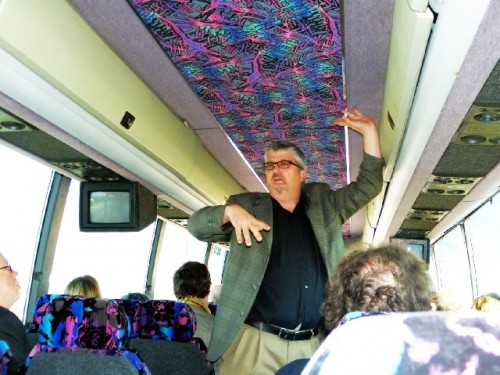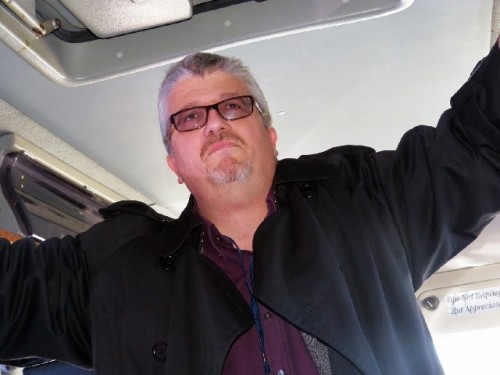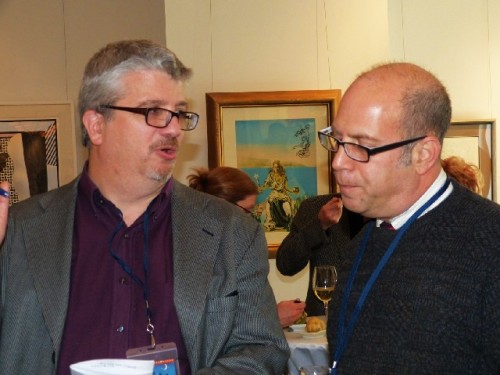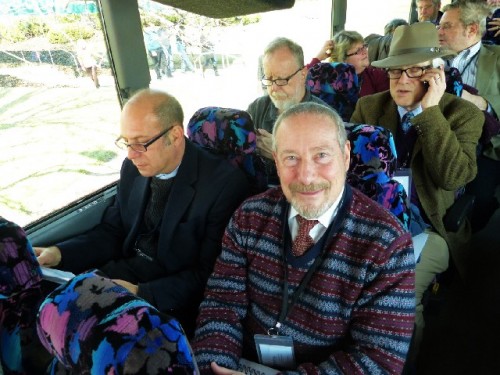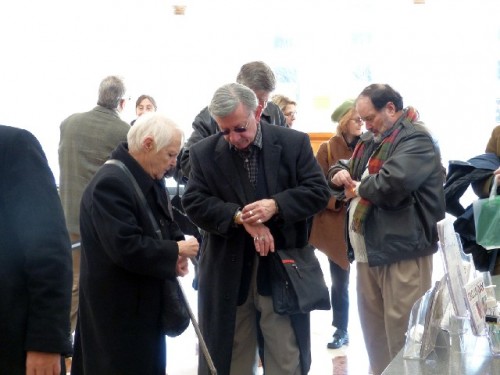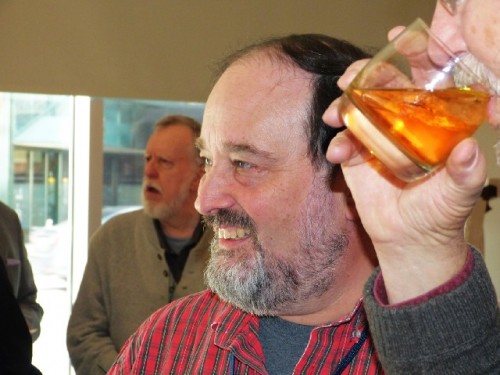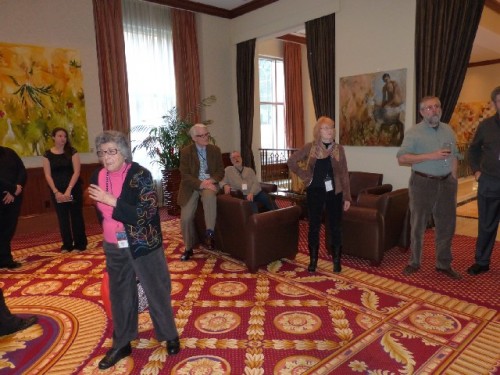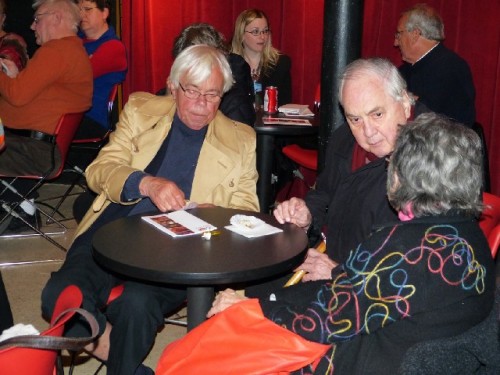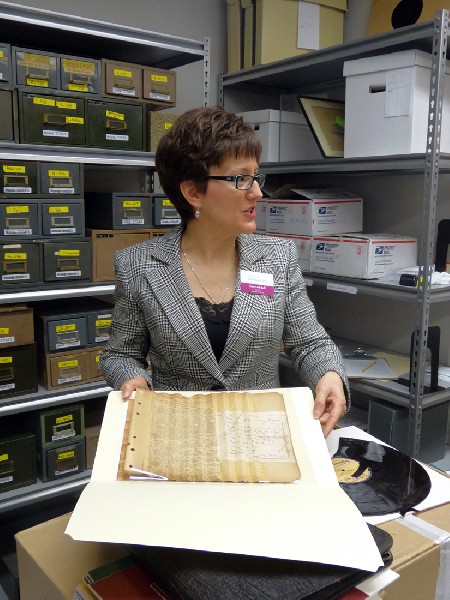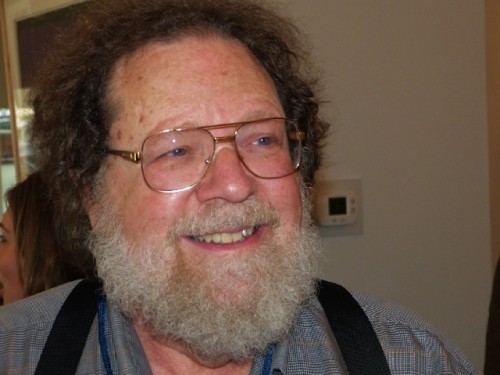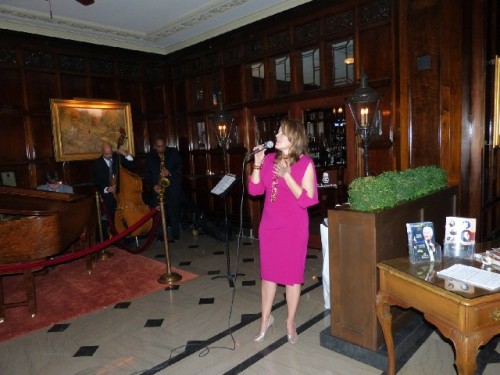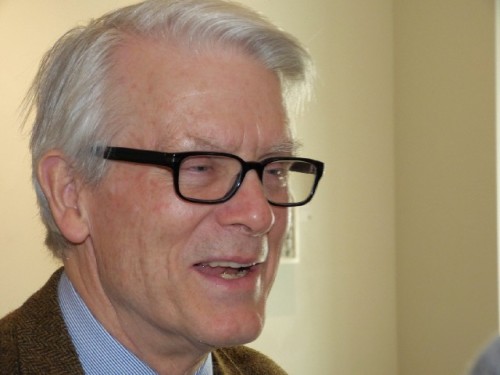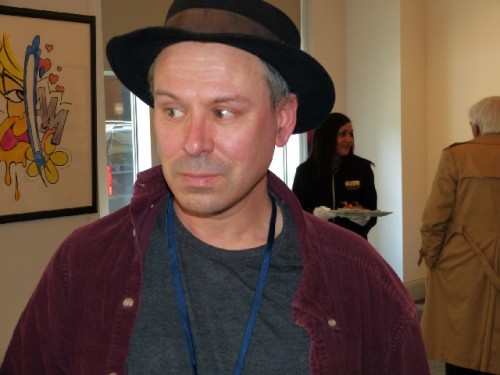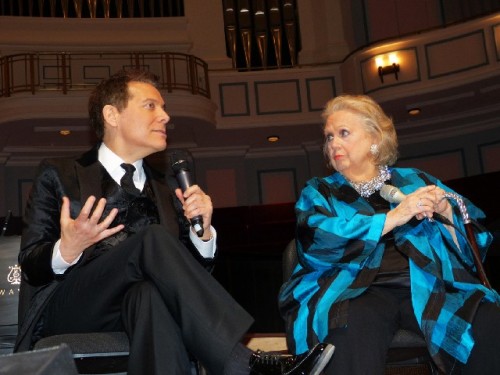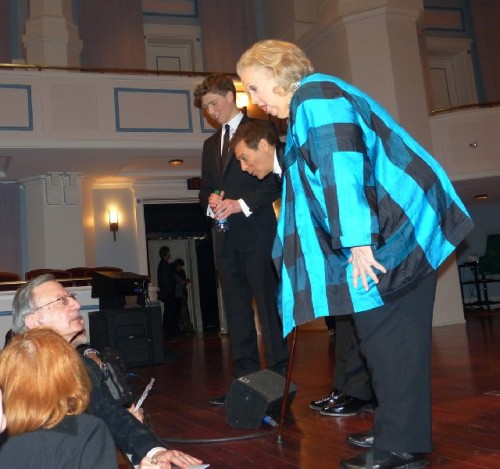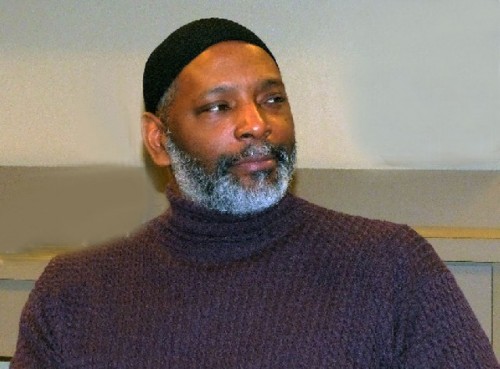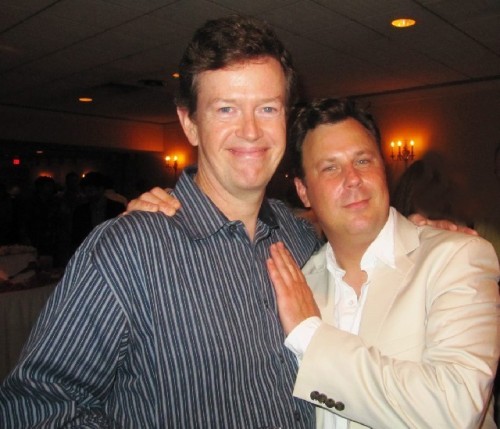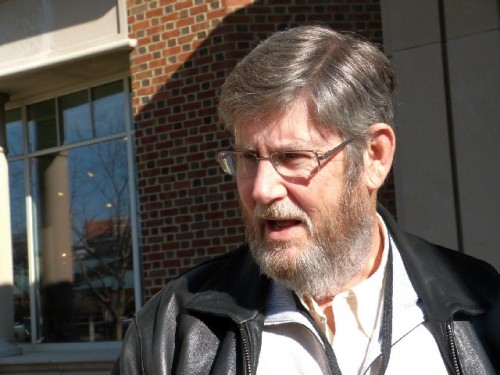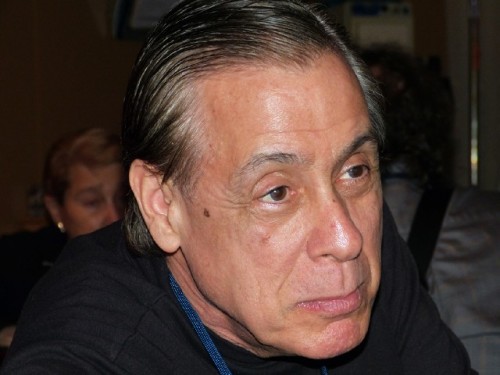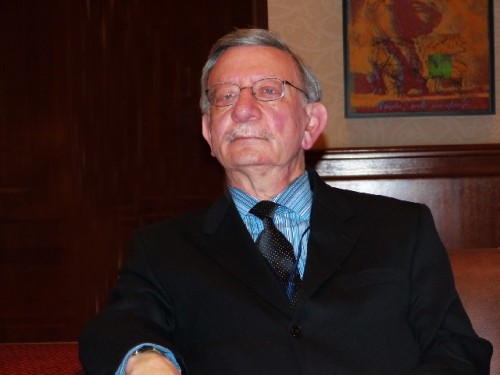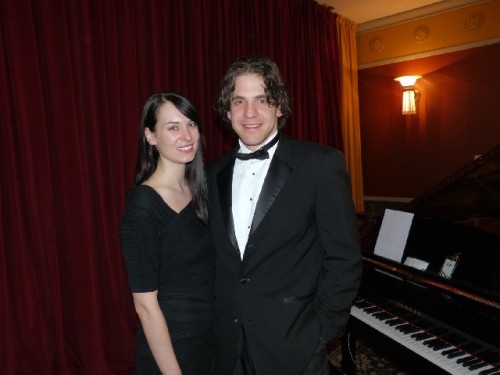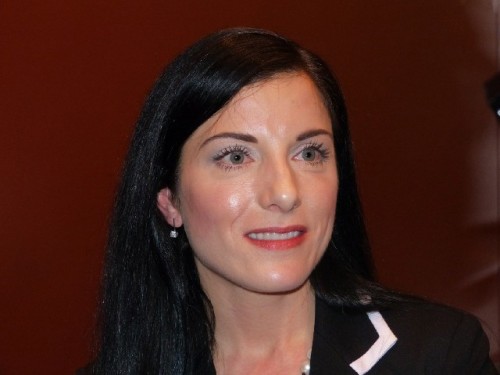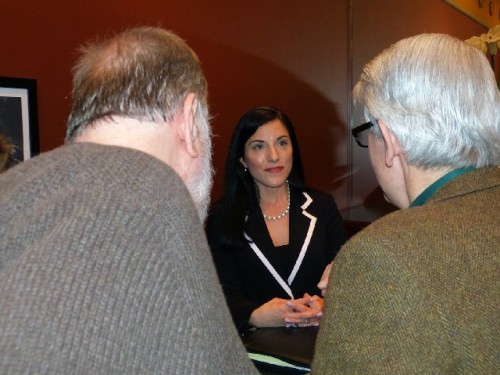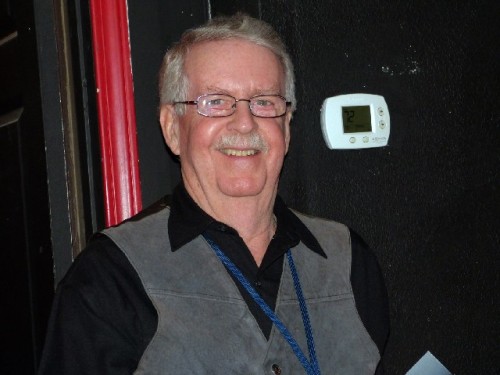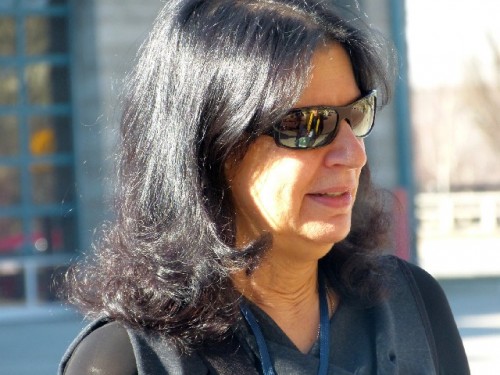Why ATCA Indianapolis
Best of the Midwest with Boys and Girls on the Bus
By: Charles Giuliano - Apr 01, 2013
Why visit Indianapolis in March?
It was a question from friends.
Were we going for the Indy 500? Or the NCAA Basketball playoffs?
In turn we asked our friends if they had visited Indianapolis?
Mark recommended St. Elmo Steak House, founded in 1902.
There were mixed responses and Indy doesn't appear to be on anyone’s bucket list.
It was also a question that continually surfaced both in official panels as well as informally over breakfast at the brand new, upscale Alexander Hotel, and during many receptions, meals and post performance chats over nightcaps.
A week later, having returned from the four day American Theatre Critics Association conference organized by Lou Harry, the drama critic for the Indianapolis Business Journal, we are still sorting out an intensive assault on the senses.
With remarkable efficiency we were loaded on and off cars, busses and vans for a rich and compelling cornucopia of theatre, fine arts, dance, music, cabaret, tours, panels, food and drink.
Through months of negotiations there were unique arrangements for special performances, access to behind the scenes tours, meetings with arts presenters, and a very special, exclusive post performance interview with the singers Michael Feinstein and Barbara Cook.
It was an experience we could never duplicate on our own.
Indy rolled out the red carpet for us and then some.
While, out front, Indy was not high on a list of priorities we signed on with forty other members and guests primarily on the strength of a similar event we attended last June in Chicago. It was just incredible. Particularly to learn that Chicago has some 200 theatre groups of which we experienced just the icing on the cake.
I asked Jonathan Abarbanel, who organized the Chicago event, when we might next visit the Windy City? In another decade was the response “But by someone other than me.” He added a few bon mots about how no good deed goes unpunished.
Looking about it was a reference to the aging ATCA membership which is also true for arts audiences in general. It was a point reiterated during a chat with David Lefkowitz from Denver. “When I joined ATCA twenty five years ago, in my twenties, I was the youngest member. Now look around.”
I connected with Christopher Arnott, a new member from New Haven. He started in Boston but described the difficulty of musical chairs in a tight town. A move to Connecticut opened up immediate possibilities.
It is encouraging to encounter new members but overall, as an organization, ATCA can do a lot more to recruit and encourage younger critics.
In the field there is a paradigm split between an old guard rooted in print media and the free for all bloggers.
It is a dialogue that has come up about press credentials with theatres. Regarding the tone of reviews, and ones that cross the line from criticism to the perception of personal attacks, in print media there is the check and balance of editors. That is mostly not the case with bloggers who self edit. Everyone can use an editor. For this site I get to edit contributors but who restrains me when I go too far?
Arts presenters often state that they can take negative reviews as long as they are ‘scholarly’ and meet professional standards.
The problem is that there aren’t any rules or standards for on line publishing. For ATCA membership we submit writing samples for peer review. But there is a serious issue of boundaries and taste. We are comped at the discretion of theatres and arts organizations. One aspect of that results in lavish praise for so so productions. Juicy one liners are extracted for ads hyping the box office.
Gushing praise assures that we hold onto our seats but represents a disservice to readers who rely on critics for honest opinions.
There is an interesting debate about creating a Chinese Wall between critics and the artists and companies we cover.
A couple of years ago I attended a lecture by former New York Times Theatre Critic Frank Rich. He described having no personal relationships within the theatre community. His one “friend” it seems is Stephen Sondheim. Isn’t that amazing.
For a major paper like The Times critics only review. They don’t write previews, features or interviews. This is the domain of arts reporters who do not review. Or at least this is the way it used to be.
Coming to committed theatre criticism rather late in life I take the Socratic approach. That entails seeking out interviews with actors, playwrights, artistic directors, fellow critics, publicists and anyone willing to mentor me.
Last night, for example, I was absorbed by yet another appearance by the always fascinating Dylan Baker in the show The Good Wife. He is such a great villain. For openers I once asked him "Why are you such a bastard?" He just smiled. Over the past few summers I have encountered and talked with him at the Williamstown Theatre Festival.
There is an ongoing dialogue with John Douglas Thompson that started with Othello at Shakespeare & Company. Similarly, I have had many conversations with playwright Mark St. Germain. This summer we plan to attend the ATCA meeting in West Virginia where he will premiere a new play about Hemingway and Fitzgerald. It will come to Barrington Stage in the fall.
It raises the issue of objectivity when, as a critic, I review those I know through interviews and dialogues. Yes, it is challenging and not easy to make that separation. But one also feels much closer to an understanding of the work. A tough, honest review may prove to be more insightful.
Last winter, for example, when Thompson was developing a role for drama critic, Terry Teachout’s first play Satchmo at the Waldorf I researched Armstrong, early jazz and the music of New Orleans. That entailed transferring many LPs to the hard drive and making CD’s. I scoured Teachout’s excellent book on Armstrong which was a resource for the one man play. I discussed the early jazz with Thompson and later extensively interviewed Teachout.
By opening night at Shakespeare & Company I was anything but objective. I had been living with and thinking about that play for months. Finally seeing it was almost anti climatic.
Some critics read plays and do research about shows that they review. While others, particularly with new works, want nothing interfering with fresh impressions reflecting those of the audience. They are only interested in how the play functions on stage as a work of art.
Theatre people always tell us that they don’t read our reviews but I’m not so sure. Some say that they read reviews only after a production ends. Last summer, however, Brad Oscar who played Tevye in the Barrington Stage production of Fiddler on the Roof, was so deeply traumatized by the harsh review of Jeffrey Borak, in the Berkshire Eagle, that it negatively impacted his next few performances. It led to a stand off between the company and critic that, at least for now, has been resolved.
Critics, including myself, tell tales of attempts to have us fired.
Or wacked! As in Who is Killing the Great Chefs of Europe? Maybe they can write that into an episode of Smash. Which is getting better by the way after a sluggish start of the second season.
Some critics feel that so much as a cookie snatched from the lobby spread on opening night will compromise their integrity. I raised that point during a dinner conversation. Toni Sawyer, an actress from Los Angeles and voter for regional theatre awards, mentioned an article in the LA Times about “Pigs at the Trough” that outed bloggers vacuuming the buffet.
Her particular observation was that too many self proclaimed critics were mostly know nothings and hangers on. No argument there. It underscored the divide between theatre professionals who have dedicated their lives to their art and ‘critics’ who are looking for free entertainment followed by snacks.
Anyone who blogs and tweets is a ‘critic.’
True. But now theatre companies are getting cute by cherry picking the unqualified gush of bloggers. This drivel is posted to their websites as a strategy to drown out and smother what may be legitimate concerns of “serious” critics. Of course when that same “serious” critic has something nice to say it gets tagged in ads. The inference is that a “tough” critic really likes the show.
Just who do we write for? Ourselves? Our peers? The audience? The actors and company? The PR people?
Ask yourself that question the next time you read a review.
Speaking with an ATCA member from Florida he described changes of ownership at his newspaper. One result is that he is now mandated to Facebook and Tweet. He mostly uses Facebook to link to reviews. During the Indy meeting he was shooting with his smart phone to get images for a later blog report.
So what does this have to do with Indy?
Probably not much but the meeting, a busman’s holiday, makes one think of the craft of writing. Who and what is a critic and why are we doing this? Other than casual conversations there never seems to be enough focus on the state of criticism.
During a meeting with the American Songbook archivist in Carmel, or a panel discussion in the Cole Porter room, the deep knowledge and insights of many ATCA members was truly amazing. What a vast resource of theatre history. Like discussing Edward Albee with Herbert his friend and critic.
We gathered in Indianapolis to acquire priceless insights on the state of the arts in a Red State in the Heartland of America. To what extent was what we experienced mainstream and conservative? How might one take the critical and political pulse of the arts community?
What is happening to the arts in America when critical thinking is mandated out of schools in a rush to the top focused on math and science skills?
How do we respond to an arts agenda that seems to be set by Paul Ryan, The Tea Party, and the Religious Right? I raised the questions in Indy but didn’t get much of an answer.
Then it was back on the bus and off to the next show.
Praise the Lord and pass the ammunition.

